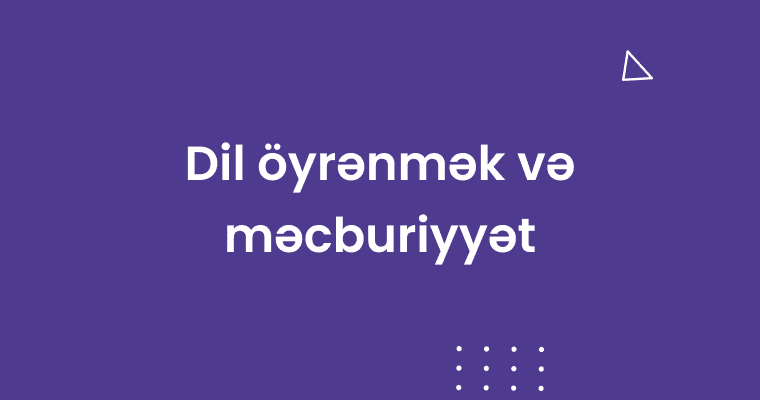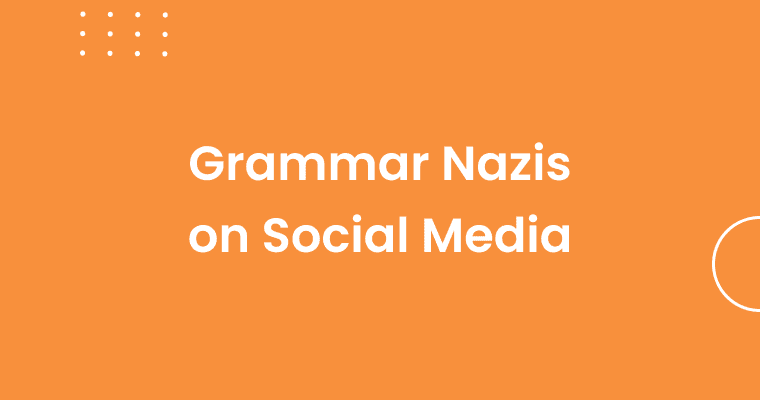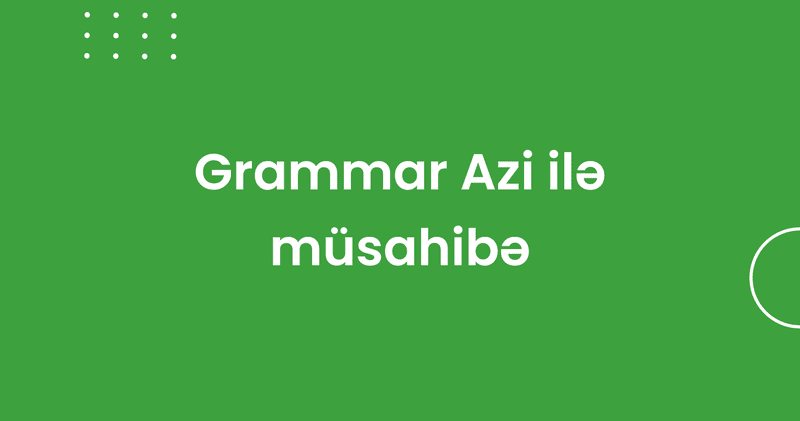
Dil öyrənmək və məcburiyyət
İnsan həyatda qalmaq uğrunda olduğu mühitə uyğunlaşmaq üçün möhtəşəm alətlərə sahibdir.
Dil öyrənmək
baxış
Sputnik V COVID-19 vaccine: A new foreign policy tool for Russia?
Given the devastating global impact of the COVID-19 pandemic, vaccines are becoming increasingly important in the world today. They are not only used to control the ongoing pandemic. For Russia, ‘Sputnik V’, the world’s first officially registered vaccine, has been presented as a new tool to return the nation back to the world’s centre stage, influencing governments abroad and bolstering its standing in various parts of the world. In the absence of access to Western countries’ vaccines due to the focus of these countries on vaccinating their own population and slow vaccine rollout, more and more countries are opting for Russia’s vaccine, which enables Russia to engage actively in ‘vaccine diplomacy’ worldwide to achieve its foreign policy objectives.
The world has encountered a novel and very unprecedented challenge – COVID-19, which has caused severe political, social, and economic consequences in almost every country. In the light of the ineffectiveness of repeated lockdowns, vaccines are perceived as the only way out of the pandemic, allowing countries to bring the virus’s rapid transmission under control. However, COVID-19 vaccines are not just seen as providing protection from the deadly virus; they are also used as a tool by some countries for achieving geostrategic political purposes. Russia, which is one of the active players engaging in ‘vaccine diplomacy’, seeks to expand its global influence through the strategy of selling and/or donating the Sputnik V vaccine for use abroad. The vaccine is perceived as another tool to fulfil President Putin’s long-standing desire to bring Russia back onto the world stage and restore it to great power status. Taking advantage of the vaccine vacuum, Russia has been sending millions of doses of Sputnik V vaccine to regions where Russia has a limited presence or is competing for influence with the US. The vaccine is a crucial tool for Russia, giving it an advantage in its competition with the US for global power during the COVID-19 pandemic period. It promises Russia not only greater leverage in various parts of the world, but also an enhanced image in science. In this article, I first explain why the Sputnik V COVID-19 vaccine has been deemed a success story for Russia, including in this a discussion of which countries have signed up for Russia’s vaccine in light of the shortage of supply of vaccines from the West. I then analyse how Russia is using the Sputnik V coronavirus vaccine for its political/geostrategic purposes in two regions on which Russia has been concentrating its efforts: Europe and Latin America.
Realists argue that power is a vital factor in international relations that shapes relations between states. As Hans Morgenthau argued, ‘international politics, like all politics, is a struggle for power’ (cited in Więcławski, 2012). In this perspective, states as rational actors seek to increase their own power and influence in order to ensure their security in an anarchic international system. For self-interested states, the international environment becomes secure when they maximize their relative power over others; and to this aim, they employ self-help strategies, or, in other words, tools. These realist elements are found in Russia’s foreign policy. Since Putin came to power in 1999, Russian foreign policy has become more active, taking the approach of trying to increase its power. As a rising power, Russia has been seeking to disrupt the world order in which the US is an only superpower and secure a major global position for itself. With his speech at the 2007 Munich conference, Russia’s President Putin made it clear that Russia does not accept a unipolar world and instead defends a multipolar international system (Kremlin.ru, 2007). For this reason, he believes that it is necessary for Russia to expand its influence across the world and thereby reclaim a great power role (Feinstein & Pirro, 2021). To this end, Russia is applying a set of tools of influence such as natural gas, human intelligence, and cyber operations. With the emergence of a novel challenge in the world, the COVID-19 pandemic, the Sputnik V vaccine was added to the list of tools of influence contributing to Russia’s attempts to maximize its leverage in the global arena. Russia views the pandemic as an opportunity to develop its presence in different corners of the world using its new tool. I focus in this article primarily on Russia’s vaccine diplomacy in Europe and Latin America, since these regions both occupy special places in Russia’s foreign policy agenda. Russia has been attempting to increase its limited presence in Latin America since 2008, considering the region’s growing role in international affairs, and seeing this as one arena for Russia to try to reposition itself as a world power and further its aim of building a multipolar world (Chaguaceda, 2019). When it comes to Europe, Russia has been pursuing a policy of divide and rule, utilizing multiple tools of influence, with the aim of weakening the EU and dealing with each member state separately.
On August 11, 2020, the President of Russia, Vladimir Putin, surprised the whole world with his announcement of the approval of the first vaccine against the COVID-19 – the domestically manufactured Sputnik V vaccine – for widespread use throughout the world. Even prior to the declaration of the COVID-19 outbreak as a pandemic by the World Health Organization in early March, Russia’s Gamaleya National Centre of Epidemiology and Microbiology had already commenced developing a prototype of what would become the Sputnik V vaccine (Baraniuk, 2021). Initially, Putin’s announcement was greeted with scepticism abroad, due to the absence of trials having been conducted on the safety and effectiveness of the vaccine. However, the early scepticism about the Sputnik V vaccine mainly vanished after the prestigious British medical journal The Lancet published a report stating that the Sputnik V vaccine has an efficacy of 91.6%. In one of the commentaries published in the journal, it was clearly stated that ‘another vaccine [Sputnik V] can now join the fight to reduce the incidence of COVID-19’ (Schiffling & Breen, 2021). Touted as “the best vaccine in the world” by President Vladimir Putin, the Sputnik V vaccine highlights Russia’s excellence and thereby helps to restore its image as a global scientific power, after years of relatively few scientific achievements in the wake of the USSR’s dissolution in 1991 (News 18, 2021). The name of the vaccine carries a symbolic meaning, referring to Russia’s most famous scientific achievement during the Cold War period – the launching of the world’s first space satellite in 1957, which was considered a historic setback for the West.
Russia’s intention to use the vaccine for its geopolitical aims was clear from the outset, since Russia rushed to export millions of doses of its pioneering vaccine abroad prior to sufficiently vaccinating its own people. As of April 27, 2021, only about 12 million Russians, or 8.3 percent of the total population, had received at least the first dose of Sputnik V, whereas at that time 42.7 percent of the US population had received at least the first dose of vaccine, despite a slow rollout (Anderson, 2021). However, the US’s retreat from multilateralism, or, more precisely, the absence of US leadership in the global initiative against COVID-19 and the lack of coordination with the EU in the fight against the novel pandemic dur-ing the presidency of Donald Trump, as well as its prioritization of the US population in vaccination, worked well to the advantage of Russia. To which should also be added the slow progress of the EU’s vaccination efforts, due to a number of factors, including delays in delivery of the AstraZeneca vaccine and declining supplies (Colson, 2021). Consequently, the shortage of vaccine supplies from the EU and US forced more and more countries struggling with a high number of COVID-19 cases to turn to the Sputnik V vaccine, which allowed Russia to step in and fill the void. So far, more than 60 countries worldwide, including several EU members, have approved a total of approximately 1.2 billion doses of the Russian vaccine for domestic use (Statista.com, 2021). Several countries, including India, Argentina, Serbia, and Italy (becoming the first EU country to manufacture the Russian Sputnik V vaccine without waiting for the approval of the European Medicines Agency) have been granted authority by Russia to produce Sputnik V in their own factories (Euronews, 2021).
Russia is using its COVID-19 vaccine to inject itself into the EU, sowing divisions among EU member states, even within their governments, and thereby undermining the solidarity among member states in their approach towards Russia. The vaccine allows Russia to be involved in EU politics, increasing its role while amplifying divisions throughout the bloc. While Sputnik V is yet to be approved by European Medicine Agency (EMA), where it is still under evaluation, and European Commissioner for Internal Market Thierry Breton highlighted that the EU does not need the Russian vaccine, a number of member states have not hesitated to cut their own deals with Russia, moving away from the EU’s common approach (Gotev, 2021). Encountering delays in Western vaccine supplies, Hungary and Slovakia had already purchased the Russian vaccine, bypassing the EMA’s regulatory supervision. In the meantime, the Czech Republic, one of the countries worst-hit by COVID-19 (Koslerova, 2021), expressed interest in the Sputnik V COVID-19 vaccine, with its Prime Minister Andrej Babis stating that the Czech Republic could use the Sputnik V coronavirus vaccine even though it had not been approved by the EU’s drug agency, the European Medicines Agency (EMA) (Reuters, 2021). Even Germany and France, which have mostly defended the EU’s common approach, had already begun conducting negotiations with Russia to buy the Sputnik V vaccine, while Austria concluded its talks with Russia to acquire 1 million doses of Sputnik V vaccine. As can be seen from these examples, Russia has already achieved its objective; like Russia’s other political tool, natural gas, the Russian vaccine has essentially divided Europe. In the case of natural gas, Central and Eastern European states consider Russia an unreliable energy supplier, and hence, aim at reducing their dependence on Russian gas, an aim that quite a few other EU member states (Germany, France, Italy, Netherlands, the Nordic countries) do not regard as important; thus, some have continued to conclude long-term bilateral supply contracts with Russian state-owned natural gas companies (Belkin, 2008). Similarly, while some member states, such as Lithuania and Poland consider the Russian vaccine a threat, and others prefer to await the approval of the EMA, several member states have already entered the deal, with Russia acting separately, neglecting the EU-wide approach. In this respect, it is interesting that the Prime Minister of Lithuania labelled the Russian vaccine ‘another hybrid weapon to divide and rule’ Europe (Henley, 2021). The Russian vaccine has not only triggered splits among member states; it has also caused divisions within these states and their governments. For instance, the Slovakian government collapsed after its Prime Minister Igor Matovič secretly struck a deal with Russia to purchase 2 million doses of Sputnik V vaccine despite the opposition of his coalition allies in the pro-Western government, which caused a political crisis. He stepped down, ostensibly to pull the country out of the crisis (Holroyd, 2021). In Italy, significant disagreements between different regions emerged over the Sputnik V vaccine. Italy’s Umbria, Lazio, and Sardinia regions stated their willingness to use the Russian vaccine, and the Campania region went as far as to cut its own deal with Russia to buy the Sputnik V vaccine, while the president of the Emilia-Romagna region criticized these regions, emphasizing that ‘no Italian region can buy vaccines on its own, as the rules stand today’ (Damiani, Lettig, & Michalopoulos, 2021; Reuters, 2021). In the Czech Republic, following the president’s statement of interest in the Sputnik V vaccine, the prime minister sacked the health and foreign ministers due to their opposition to buying the Russian vaccine without its registration with EMA (Rohac, 2021). By causing deepening disagreements and divisions throughout the bloc, Russia pursued the objective of preventing the EU from speaking with one voice, making it weak in the face of Russia, and effectively unable to take a single position that might seem too harsh vis-à-vis Russia. This is particularly important for Russia, at a time when the EU wants to punish Russia over issues that include the poisoning of opposition leader Alexey Navalny and the military build-up in the eastern part of Ukraine. It could be argued that the EU’s dependence on Russian vaccine supplies and divisions among member states over them, which have generally affected their positions on Russia broadly, is one of the reasons why the EU has not yet been able to come up with a tough and unified stance on Russia on the above-mentioned issues. For instance, with regard to the attack on Navalny, the EU has been satisfied with sanctioning only a handful of Russian officials. As for the military troop build-up in eastern Ukraine, which was the highest ever with more than 100,000 soldiers, the EU did not even feel the need to impose economic sanctions on Russia despite the calls from the Foreign Minister of Ukraine to do so (Reuters, 2021). It can be claimed that these short-term purposes are aimed at achieving Putin’s long-term objective of world-power status for Russia. In order to reach this goal, it is important to have a divided and consequently, weak Europe, which would be unable to think and act strategically towards Russia. In this context, the Sputnik V vaccine is a new foreign policy tool that allows Russia to influence European politics, its decision-making process amplifying divisions and disagreements in the union.
The Sputnik V coronavirus vaccine can be seen as a means that, alongside military arms and equipment sales, counterdrug agreements, and trade generally, are being used by President Putin to expand Russia’s presence in the region, which has traditionally been considered as within the US’s sphere of influence. In recent years, trade and immigration issues with the US, the rise of populist candidates, and currently an absence of the US’s vaccines in Latin America, have created favourable conditions for Russia to gain a greater foothold in the region, which is part of Putin’s strategy to expand Russia’s global reach (Gurganus, 2018). Latin American states are on the list of worst-affected states by the COVID-19 pandemic, accounting for about 24% of all confirmed cases worldwide despite representing only 8.5% of the world population (Palassoe, 2021). Having faced their failure to obtain Western vaccines, more and more countries in Latin America are placing orders for the Russian vaccine, which allows Russia to affirm its role in the region using the health crisis to its own advantage. This situation offers Russia an opportunity to restart its diplomacy, build deeper partnerships with Latin American states, and thereby improve its engagement in the US’s backyard, which was mainly restricted to socialist and Communist regimes — Venezuela, Cuba, and Nicaragua — prior to the pandemic. The vaccine has significantly boosted Russia’s image in the region, where the planes carrying Russian vaccine are welcomed by state officials and Russia is praised on major TV channels. For instance, Bolivia immediately turned to Russia with a purchase of up to 5.2 million doses of Sputnik vaccine (Bolivian President Luis Arce personally greeted the delivery of the first doses) after struggling to sign an agreement with the Western drug firms, who told the Bolivian government that developing countries including Bolivia ‘had to wait until June’, as the Bolivian trade minister noted (Lawler, 2021). Soon after the vaccine deal, the Russian president discussed with his Bolivian counterpart various topics ranging from building a nuclear power plant to lithium mining and gas reserves (Smith, 2021). Another Latin American state, Argentina, has gratefully received approximately 4.8 million doses of the Sputnik V vaccine so far and will be the first state in Latin America to produce Russia’s vaccine (France 24, 2021). Ramscar (2021) argues that Argentina even ‘served as an embassy of sorts for Sputnik V; reportedly, Argentinian delegations to Moscow in late 2020 translated reams of details into Spanish and shared these with Bolivia, Peru, Mexico, Uruguay, and Chile to speed up their ability to decide.’ In Mexico, Foreign Minister Marcelo Ebrard Casaubón, standing alongside the Russian Ambassador to Mexico, Viktor Koronelli, accepted the arrival of the first batch of Sputnik V vaccines in late February 2021 at the Mexico City International Airport, expressing his gratitude to Putin (VOA News, 2021). In total, at least nine states in the Latin American region have approved the Russian vaccine, and this growing acceptance of the Sputnik V vaccine suggests that Russia is enhancing its standing in the region while the US is losing influence.
In a world where an unprecedented challenge, COVID-19, has impacted nearly every country, taking the lives of millions of people, and causing a deep economic recession, several countries are exploiting the situation to achieve foreign policy objectives. Russia is keenly filling the vaccine vacuum that was created by vaccine nationalism and the slow vaccine rollout in the West, engaging in ‘vaccine diplomacy’ in Europe and Latin America with the aim of boosting its global standing. In the long-term, Russia’s President Vladimir Putin aims to return his nation to great power status, building a web of relationships and enhancing its influence in Latin America, the Middle East, Africa, and other parts of the world, using the vaccine as another tool. In Latin America, which is tra-ditionally considered the US’s backyard, more than nine states have already authorized Russia’s homemade Sputnik V vaccine for domestic use, allowing Russia to expand its presence in the region by improving its bilateral relations with the state in question and gaining strategic influence. In Europe, Russia’s vaccine has triggered divisions between -and within- the various national governments that are undermining Europe’s ability to speak with one voice, and thereby weakened the EU, which is useful for Russia’s project of achieving world-power status.
(page 259) The Unprecedented Impacts of COVID-19 and Global Responses
2021-09-11
Bloqu paylaşın:


İnsan həyatda qalmaq uğrunda olduğu mühitə uyğunlaşmaq üçün möhtəşəm alətlərə sahibdir.
Dil öyrənmək
baxış


The language we learn since our childhood at home develops our identity.
Linqvistika
baxış


Məşhur Grammar Azi səhifəsinin admini, Murad Hüseynovla müsahibəmi təqdim edirəm.
Linqvistika
baxış